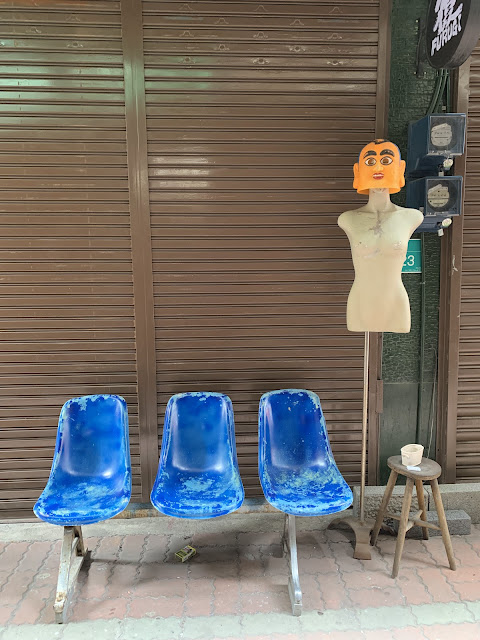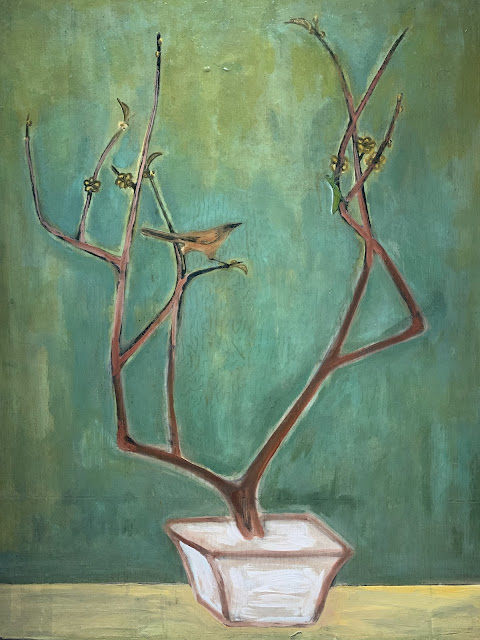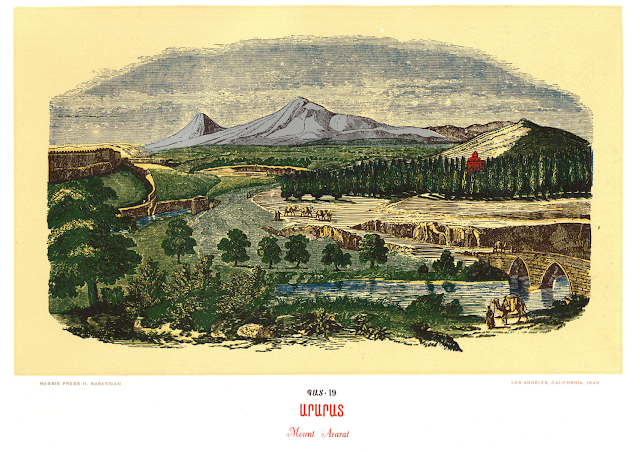It doesn't matter if they're locals or immigrants -- more than ever, just about everyone I know in Taiwan is worried about a Chinese invasion. It's always been a question pushed to the far back of our minds: might it happen? If so, when and how? What will I do? Do I need an emergency plan?
The United States has a spotty record in global leadership, and that's putting it kindly. As an American, I'd argue that we've done more harm than good on the whole. However, abdicating that role in favor of screaming matches with world leaders, annexation threats against our closest allies, Nazi salutes, gutting our own government, conspiracy theory screaming, rape, felony convictions, arbitrary detention and deportation, other assorted screaming and low-budget car commercials has handed some of the other worst people in the world an unobstructed path to their own form of global domination.
In Taiwan, that's terrifying. Like it or not (and I mostly do not), the US is one of Taiwan's closest strategic partners despite the lack of formal recognition of Taiwan's statehood. The guy many people thought would be good for Taiwan in 2016 based on one phone call, some anti-China rhetoric and a few appointments of terrible people who happen to support Taiwan is now looking like...well, not a great bet.
It's got a lot of us wondering what's in store for Taiwan, when our major strategic partner has not only become unreliable, but seems to have brain-hemorrhaged itself out of any sort of international stewardship. Since the 1990s if not earlier, and especially since escalating its annexationist rhetoric, the Chinese government can be reasonably assumed to operate under three assumptions:
1.) The ultimate goal vis-a-vis Taiwan is annexation.
2.) It is preferable for this to happen without war, i.e. convincing the people of Taiwan to accept unification by any means necessary, including political and media interference.
3.) If annexation without war is not possible, war is on the agenda once China believes it can win fairly easily.
When Ukraine made a strong showing against Russia, China was very obviously watching both the Ukrainian resistance and global support amid the crumbling of Russian assumptions that this would be an 'easy' war and quick victory. Many of us felt a mixed sense of hope and foreboding: the buoy was Russia getting bogged down in Ukraine, showing that China might not have an easy time in Taiwan. The ballast was a global focus on not provoking China, rather than ensuring the CCP would not even be able to start such a war, along with general ignorance regarding how deep China's influence operations in Taiwan really go:
Taiwan’s rugged terrain makes the country a defender’s paradise. If the Taiwanese people fight like Ukrainians, even a mighty PLA landing force would likely flail and be unable to kill its way into Taipei. With this in mind, CCP agents are working overtime to weaken resolve and soften up the “human terrain” of the future battlefield.
To enfeeble their victims, the CCP’s spy services, the shadowy Ministry of State Security (MSS) and PLA Liaison Bureau, are carrying out a sweeping campaign of covert operations. Their goal is to eat away at the Taiwanese government, military, and society from within. If their strategy achieved total success, they could subvert and overturn Taiwan’s democracy, leaving the occupation force to confront a short guerrilla war and American trade sanctions.
But even if the CCP’s dream scenario is unreachable, Beijing’s undercover operatives have already seduced, entrapped, and corrupted a sufficient number of opinion leaders to minimize a sense of crisis and pour cold water on public demands for action. Needed political and military reforms in both Taipei and Washington continue to be delayed.
“Let’s not forget the importance of one of the main targets of MSS influence operations: scholars, commentators, and non-governmental observers of China,” said Alex Joske, author of Spies and Lies: How China’s Greatest Covert Operations Fooled the World. “The degree of obliviousness and recklessness with which some of these people have treated the CCP is astounding.”
The distressing reality is that the CCP has an army of secret agents dripping poison into hearts and minds, and they have already been effective at making some seemingly common-sense policy changes appear unthinkable.
It's not just the media, and it's not just the KMT: that whole Ko Wen-je wave? A lot of that was China-backed. It runs deep, and Taiwan might be in big trouble if it doesn't counter these operations more effectively.
Even in 2023 when there was still hope that the world wouldn't be mostly run by fascist dictatorships, this was distressing. The writer of these chilling paragraphs? Ian Easton, a well-respected analyst, had been talking for years about how difficult it would be for China to actually pull off an invasion of Taiwan. But since 2020, even he's been saying a crisis might be on the horizon.
That war hasn't come quite yet, but the situation has gotten noticeably worse. The KMT/TPP-led legislature is full of traitors and bought-and-paid-for CCP agents, including the speaker (old DUI hand Han Kuo-yu) and caucus whip (convicted criminal Fu Kun-chi). Pro-China influencers retain audiences, although one of the worst offenders is losing her spousal residence permit over it. This problematic case, of course, has given the KMT the ammunition it needs to continue its attacks on the DPP as being 'fascist' and 'anti-democracy' -- which is quite the projection, considering which party oppressed democracy in Taiwan for generations.
The KMT even feels emboldened enough to propose a referendum that would seek public consent for bringing back Martial Law. Of course, if anyone would know how to conduct Martial Law in Taiwan, it would be the party that did so for the better part of the last century, but even I, a long-time KMT-hater, was shocked at their lack of remorse over their own history by proposing a sequel. There may be no constitutional court to stop it as the KMT is trying to gut that too. Cutting budgets that directly impact defense, especially the submarine budget, is another terrifying move. China seems very interested in Taiwan's indigenous submarine program, which means it's crucial.
On the China side, if anyone thought they were all talk and no game on invading Taiwan, the building of specialized barges for amphibious attack, presumably against Taiwan, they might want to sit down. This development should not be downplayed: if China will attack when it thinks it can win, it's obviously playing to win. Taiwan no longer seems to be a rhetorical device to them, something to be shouted about in speeches for effect and not much more. This is not a response to US threats or warmongering because the US is too wrapped up in its own self-destruction to warmonger much -- it's as simple as it looks on its face: we don't know when, but China is intending to invade Taiwan.
On the US side, all I can do is sigh. President Rapist and his tiny creeper screaming at President Zelenskyy was worrisome, yes. Blaming Zelenskyy for "starting the war" (fact check: Russia started the war, not Ukraine) should be chilling to anyone in Taiwan: if these jokers can DARVO the victim in Russia's invasion and say they started it, why wouldn't they do the same after a Chinese invasion? Honestly, they'd probably snark about how Taiwan shouldn't have been wearing such a short skirt if she didn't want it.
What scares me even more is President Rapist's own remarks on Canada.
"The only thing that makes sense is for Canada to become our cherished fifty-first state" sounds a lot like the CCP's "Reunification with the motherland is inevitable", that it's the inevitable course of history and the only reasonable outcome for Taiwan.
Threatening Canada with further tariffs, which of course don't work as President Rapist seems to think they do, and shaking his ugly little fist in the general direction of the Canadian economy absolutely echo the ongoing CCP attempts to tank the Taiwanese economy and thus demoralize the people into accepting China's "inevitable" plans.
Calling Prime Minister Trudeau "Governor" is basically the same play as China insisting on calling the Taiwanese president anything but "president", and saying it's a "nasty country" to deal with (may I remind you, he's talking about Canada. Again, Canada) are echoes of China screeching that the Taiwanese government and the DPP in particular are the troublemakers and not open to dialogue, which some people believe despite it being a lie without even a kernel of truth to ground it.
I'm not even going to get into his remarks on Palestine and kicking everyone out of Gaza. That's just too depressing. It does show, though, that the current administration doesn't care at all about human populations, homes or lives.
If Taiwan's closest strategic partner is talking about Canada in more or less the same way China talks about Taiwan, blames Ukraine for Russia's war the way China blames Taiwan for what China wants to do, and is absolutely gutting the US government both domestically and in terms of international diplomacy and outreach, what kind of strategic partner do we even really have? President Rapist and Chancellor Musk lead a gang of idiot thugs for sure, but are they even a gang of thugs who'll beat up their allies' enemies? Doubtful.
Do they even understand the strategic importance of Taiwan? Also doubtful, as they appear to have a child's understanding of international affairs, geostrategy and the global semiconductor industry.
After Rapey D and the Roofie Crew abandoned Ukraine, Europe began to show greater support to one of their own. That's fantastic, but if the same thing happens to Taiwan, will its neighbors step up in the same way? Japan might as it faces similar strategic concerns, but otherwise I'm not so sure.
What does that give China? Well, it gives it #3 on that list above: a window of opportunity to start a war that it might actually be able to win. If you're in Taiwan and this doesn't scare you, it should. It could quite literally ruin your life. It might well ruin mine. Without the income we need to sustain our lives in Taiwan and our only support network being friends, not family, I genuinely worry that economic pressure will render us homeless if we stay to contribute to the defense effort.
In Taiwan's defense (pun intended), everyone in government except the legislature seems to understand the scale of the threat. Civil defense and resilience are priorities, and have been for awhile. Military exercises are being extended. Improvements in military service training have been discussed since 2022, and I do happen to know it's a priority: the government is aware that the old approach to mandatory service, which was mostly marching around, sweeping offices and chanting slogans, is not useful.
Crucially, despite China's attempts to influence Taiwanese public opinion, most Taiwanese still identify as solely Taiwanese, almost nobody identifies as only Chinese, and only a minority identify as both. As of 2024, those numbers are still going strong. Whatever you're seeing on Dcard or some talking head told you on TVBS, it's not really true: Taiwan doesn't see itself as part of China, and that doesn't look poised to change.
The US may be a lost cause in just about every other way, but on Taiwan there are some faint rays of hope. Joint efforts in military and naval training are ongoing. Taiwanese representatives absolutely travel to the US frequently to do their best to work with President Rapist's administration as well as key state governments. There is no way that TSMC's announcement of massive further investment in the United States wasn't the result of some high-level discussions with government officials -- I don't know that for a fact, but it's the only logical conclusion.
Most importantly, I hate Marco Rubio in every other respect, and he supports Taiwan for all the wrong reasons, but he does support Taiwan. I can't say I'm angry about the State Department changing its public wording on Taiwan policy. The line about 'opposing Taiwan independence' never needed to be there, as Taiwan is already independent. Avoiding provocation with China was never a reasonable goal, as they'll always find something to be 'provoked' by. And yet, President Rapist has a history of firing officials who stand up to him, and his Most Divorced Weird Loser Nazi henchman has been clear that he thinks Taiwan is part of China. I'm not sure which horrible person is going to win out regarding Taiwan policy, but it's worth keeping an eye on.
I hate the idea of Taiwan continuing to work closely with a country currently run by fascists (if government officials and pseudo-officials are giving Nazi salutes and arresting dissidents while ignoring court rulings, that government is fascist). I'd love for Taiwan to be able to defend itself to the point that China has no option but to take invasion permanently off the table.
For now, though, Taiwan can't afford to ignore world affairs, and it certainly can't disavow President Rapist -- the world's most unreliable felon.
China knows that. It sees how weak the US is making itself, and I do truly fear that something terrible is coming.
Worst of all, every time I say this to friends of mine who Know Things, they nod and look sad, or admit they're worried too.



















